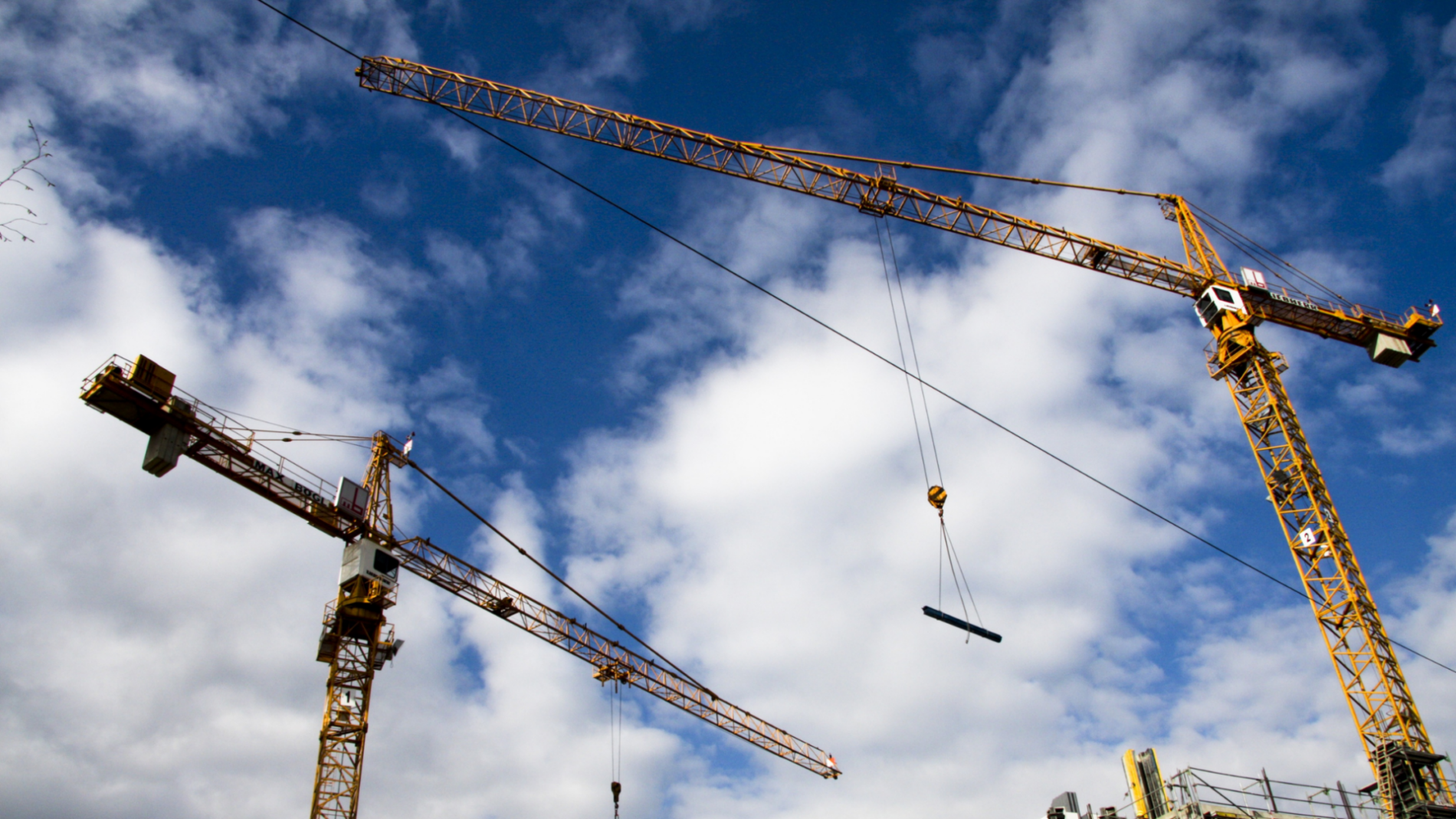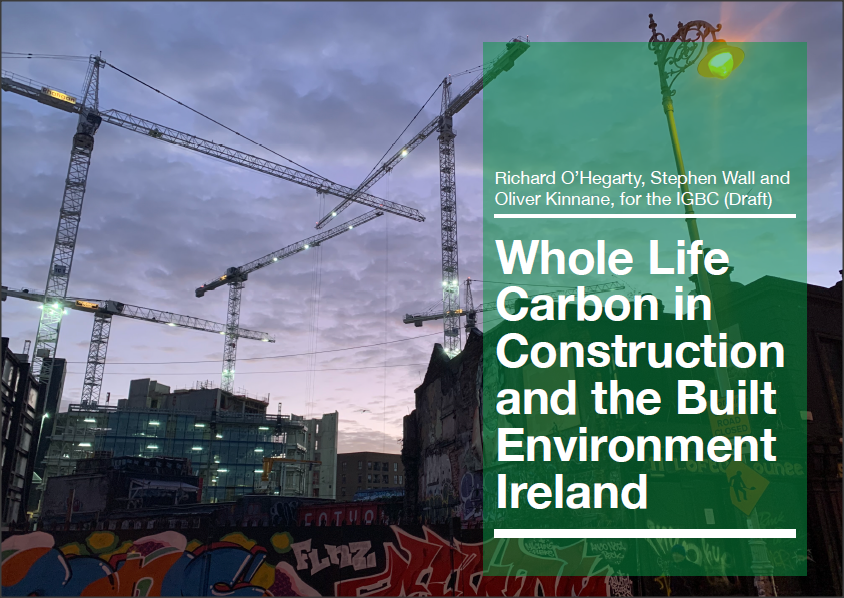Thursday, 11th November: The Irish Green Building Council (IGBC) published today a preliminary set of recommendations to address the emissions associated with Ireland’s built environment across its whole life cycle.
According to an initial assessment of carbon emissions associated with construction and operation of the Irish built environment, these account for approximately a third of Ireland’s emissions, almost the same as agriculture (37%). The initial assessment showed that heating, cooling and lighting our buildings account for 24% of our national emissions, with the remaining 11% being accounted for by embodied carbon. Embodied emissions result from mining, quarrying, transporting, and manufacturing building materials, in addition to constructing buildings.
While these emissions have been largely ignored to date, on “Cities, Regions and Built Environment” day at COP26, the IGBC published a preliminary set of recommendations to address them
Pat Barry, CEO of the Irish Green Building Council (IGBC) said: “The inclusion of whole life carbon targets for construction in the Climate Action Plan 2021 is a very positive development. What we need now is a clear pathway and concrete actions to reach these targets, and that’s exactly what we are trying to develop, working in close cooperation with industry and the public sector”.
Mr Barry explained that in its preliminary recommendations, the IGBC is proposing:
- Carrying out a comprehensive detailed carbon modelling of the National Development Plan including all proposed construction, new housing, renovation and infrastructure and reconcile with the 5-year Climate Budgets to reach the targets of 51% reduction by 2030.
- Publishing a detailed timeline for mandating Whole Life Carbon assessment and limits through regulation to provide certainty to industry.
- Streamlining building regulations, and aligning all relevant policies, and fiscal incentives to make adaptation and reuse of existing buildings easier.
- Mainstreaming innovative procurement approaches to help encourage and develop a low carbon product sector, services, and supply chain.
- Integrating low carbon design and construction skills into all relevant construction undergraduate programmes (e.g., architecture, engineering, construction, and surveying).
Reacting to the publication of the preliminary recommendations, Deputy Eoin Ó Broin T.D. said: “We are in the midst of a terrible housing crisis, but we are also in a climate emergency. Interestingly, the preliminary recommendations published today highlights that these can be addressed together: the greenest building is often the one that already exists. Political action is hence more than ever needed to bring more vacant space back into use”.
Kathryn Meghen, CEO at the RIAI added: “Transitioning to a net zero built environment requires strong cooperation of all involved in the industry. While progress has been made, much more is needed to tackle whole life carbon emissions in the built environment. I welcome the publication of these preliminary recommendations and look forward to working with the IGBC and other professional bodies to mobilise the industry”.
#BuildingLife aims to achieve the mix of private sector action and public policy necessary to tackle the whole-life environmental impact of buildings. Eoin Ó Broin T.D. and Kathryn Meghen are ambassadors for the #BuildingLife campaign in Ireland.
The preliminary recommendations will be reviewed and further developed through detailed thematic workshops over the next six months. All organisations interested in contributing to this process should contact the Irish Green Building Council.
The preliminary recommendations are available here.
Read the initial assessment of carbon emissions associated with construction and operation of the Irish built environment here.



